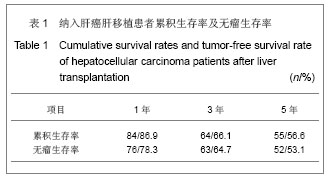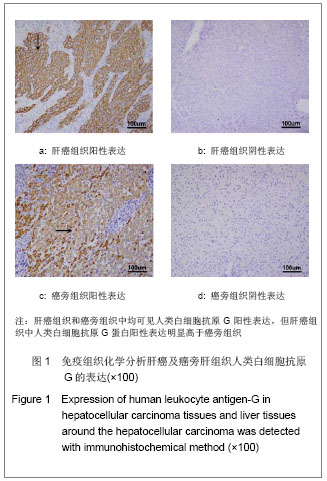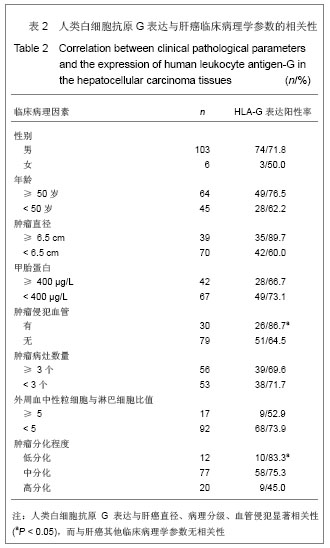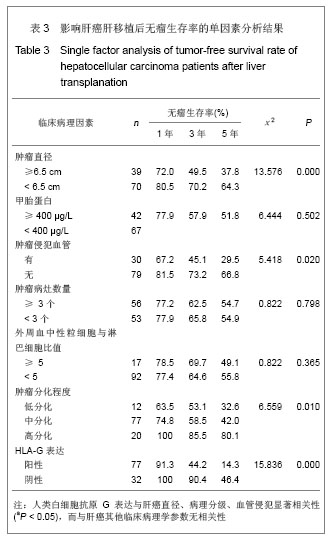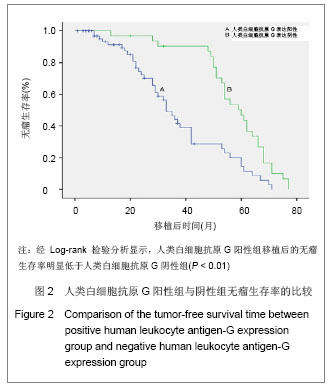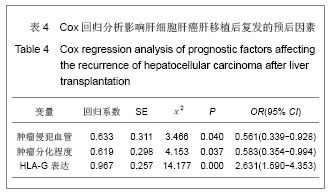| [1] CLTR 2009 Annual Scientific Report:Liver Transplantation for Hepatocellular Carcinoma[R].CLTR,China.www.cltr.org.[2] Alsina AE. Liver transplantation for hepatocellular carcinoma. Cancer Control. 2010;17(2):83-86.[3] Zeng XC, Zhang T, Li H, et al. Zhonghua Shiyan Waike Zazhi. 2009;26(8):991-994.曾宪成,张彤,李华,等.RNA干扰白细胞抗原-G增强自然杀伤细胞对肝癌的免疫监视[J].中华实验外科杂志,2009,26(8): 991-994.[4] Pang RW,Joh Jw,Johnson PJ,etal.Biology of hepatocelular carcima. Ann Surg Oncol. 2008;15(4):962-971.[5] Waschbisch A, Sandbrink R, Hartung HP, et al. Evaluation of soluble HLA-G as a biomarker for multiple sclerosis. Neurology. 2011;77(6): 596-598. [6] Verloes A, Van de Velde H, LeMaoult J, et al. HLA-G expression in human embryonic stem cells and preimplantation embryos.J Immunol. 2011;186(4):2663-2671.[7] Thibodeau V, Lajoie J, Labbé AC,et al. High level of soluble HLA-G in the female genital tract of Beninese commercial sex workers is associated with HIV-1 infection.PLoS One. 2011; 6(9): e25185.[8] Zarkhin V, Bezchinsky M, Li L, et al. Soluble human leukocyte antigen-G in pediatric renal transplantation.Transplantation. 2011; 92(1):e1-2.[9] Castellaneta A, Mazariegos GV, Nayyar N,et al. HLA-G level on monocytoid dendritic cells correlates with regulatory T-cell Foxp3 expression in liver transplant tolerance.Transplantation. 2011;91 (10):1132-1140.[10] Elliott RL, Jiang XP, Phillips JT,et al. Human leukocyte antigen G expression in breast cancer: role in immunosuppression. Cancer Biother Radiopharm. 2011;26 (2):153-157.[11] Lesport E, Baudhuin J, LeMaoult J, et al. Human melanoma cell secreting human leukocyte antigen-G5 inhibit natural killer cell cytotoxicity by impairing lytic granules polarization toward target cell.Hum Immunol. 2009;70(12):1000-1005.[12] Schütt P, Schütt B, Switala M, et al. Prognostic relevance of soluble human leukocyte antigen-G and total human leukocyte antigen class I molecules in lung cancer patients. Hum Immunol. 2010;71(5):489-495.[13] Chen Y, Gao XJ, Deng YC,et al. Relationship between HLA-G gene polymorphism and the susceptibility of esophageal cancer in Kazakh and Han nationality in Xinjiang.Biomarkers. 2012;17(1):9-15.[14] Guo QY, Chen BG, Ruan YY,et al. HLA-G expression is irrelevant to prognosis in patients with acute myeloid leukemia.Leuk Res. 2011;35 (10):1350-1354.[15] Du L, Xiao X, Wang C,et al. Human leukocyte antigen-G is closely associated with tumor immune escape in gastric cancer by increasing local regulatory T cells.Cancer Sci. 2011;102(7):1272-1280.[16] Zheng N, Wang CX, Zhang X,et al. Up-regulation of HLA-G expression in cervical premalignant and malignant lesions.Tissue Antigens. 2011;77(3):218-224.[17] de Kruijf EM, Sajet A, van Nes JG,et al. HLA-E and HLA-G expression in classical HLA class I-negative tumors is of prognostic value for clinical outcome of early breast cancer patients.J Immunol. 2010;185 (12):7452-7459.[18] Gan LH, Huang LF, Zhang X,et al. Tumor-specific upregulation of human leukocyte antigen-G expression in bladder transitional cell carcinoma. Hum Immunol. 2010;71 (9):899-904.[19] Wang Y, Ye Z, Meng XQ,et al.Expression of HLA-G in patients with hepatocellular carcinoma.Hepatobiliary Pancreat Dis Int. 2011;10(2):158-163.[20] Bukur J, Rebmann V, Grosse-Wilde H,et al.Functional role of human leukocyte antigen-G up-regulation in renal cell carcinoma.Cancer Res. 2003;63(14): 4107- 4111.[21] Zhu CB, Wang CX, Zhang X,et al. Serum sHLA-G levels: a useful indicator in distinguishing colorectal cancer from benign colorectal diseases.Int J Cancer. 2011;128(3): 617-622.[22] Mach P, Blecharz P, Basta P,et al. Differences in the soluble HLA-G blood serum concentration levels in patients with ovarian cancer and ovarian and deep endometriosis.Am J Reprod Immunol. 2010;63(5):387-395.[23] Cao M, Yie SM, Liu J,et al. Plasma soluble HLA-G is a potential biomarker for diagnosis of colorectal, gastric, esophageal and lung cancer.Tissue Antigens. 2011;78(2): 120-128.[24] de Kruijf EM, Sajet A, van Nes JG, et al. HLA-E and HLA-G Expression in Classical HLA ClassI-Negative Tumors Is of Prognostic Value for Clinical Outcome of Early Breast Cancer Patients.J Immunol. 2010;185(12):7452-7459.[25] Jung YW, Kim YT, Kim SW, et al. Correlation of human leukocyte antigen-G (HLA-G) expression and disease progression in epithelial ovarian cancer. Reprod Sci. 2009; 16(11):1103-1111.[26] Carosella ED,Favier B,Rouas-Freiss N,et al.Beyond the increasing complexity of the immunomodulatory HLA-G molecule.Blood. 2008;111(10):4862-4870.[27] Guillard C, Zidi I, Marcou C, et al. Role of HLA-G in innate immunity through direct activation of NF-kappaB in natural killer cells. Mol Immunol. 2008;45(2):419-427.[28] Yanrong Yu,Yun Wang,Meifu Feng,et al.Human leukocyte antigen-G1 inhibits natural killer cytotoxicity through blocking the activating signal transduction pathway and formation of activating immunologic synapse.HumanImmunology. 2008; 69(1):16-23.[29] Contini P,Ghio M,Merlo A,et al.Apoptosis of antigen-specific T lymphocytes upon the engagement of CD8 by soluble HLA class I molecules is Fas ligand/Fas mediated:Evi-dence for the involvement of p56lck,calcium calmodulin kinaseII,and calcium-independent protein kinase C signaling pathways and for NF-kappa Band NF-AT nuclear translocation.J Immunol. 2005;175(11):7244-7254.[30] Contini P,Ghio M,Poggi A, et al.SolubleHLA-A,-B,-Cand-G molecules induce apoptosis in T and NK CD8+ cells and inhibit cytotoxic T cell activity through CD8 ligation.Eur J Immunol.2003;33(1):125-134. |
